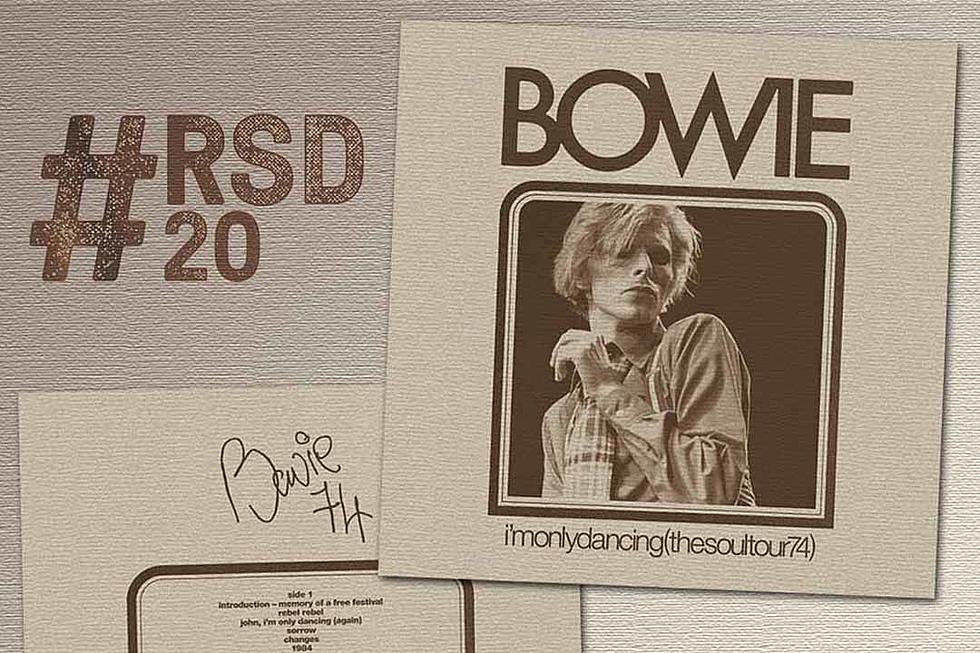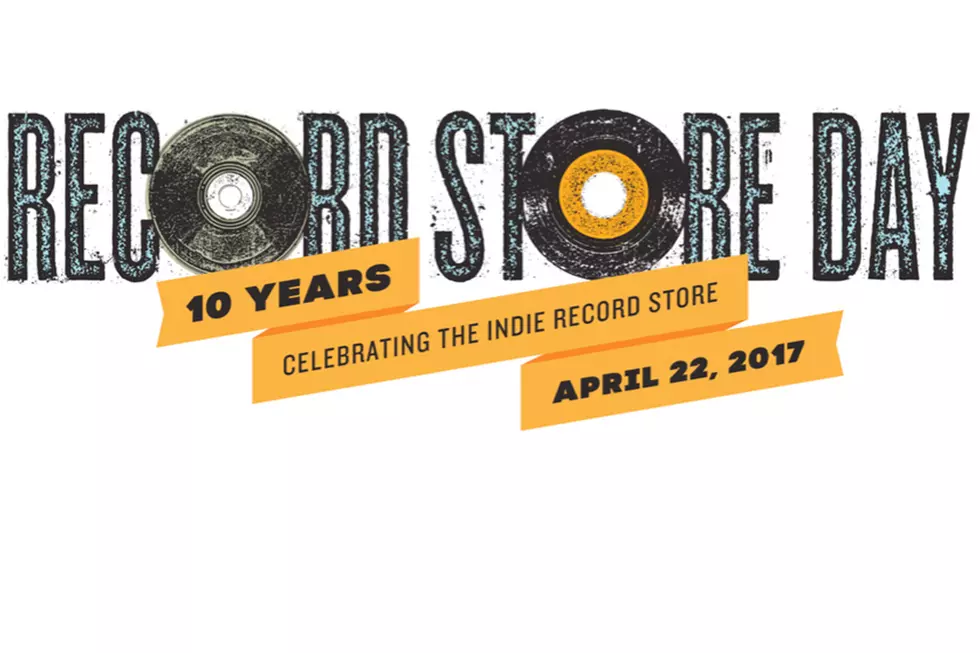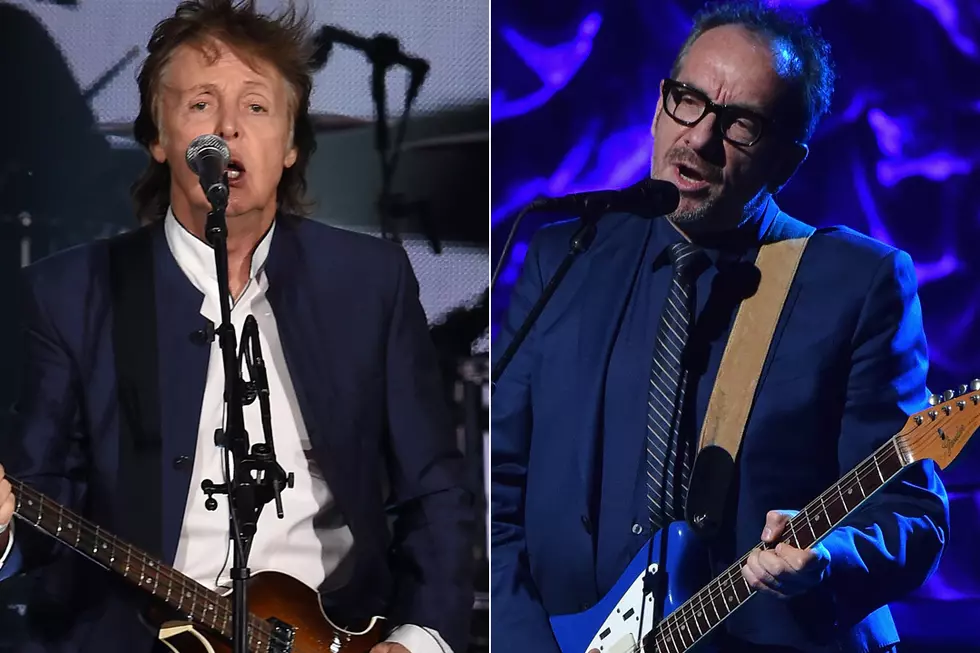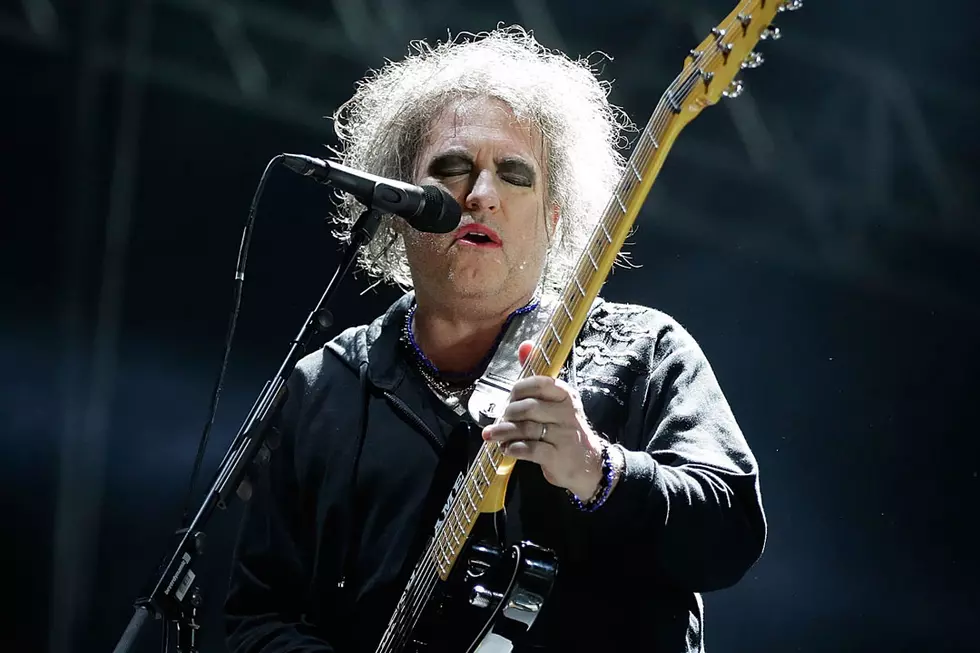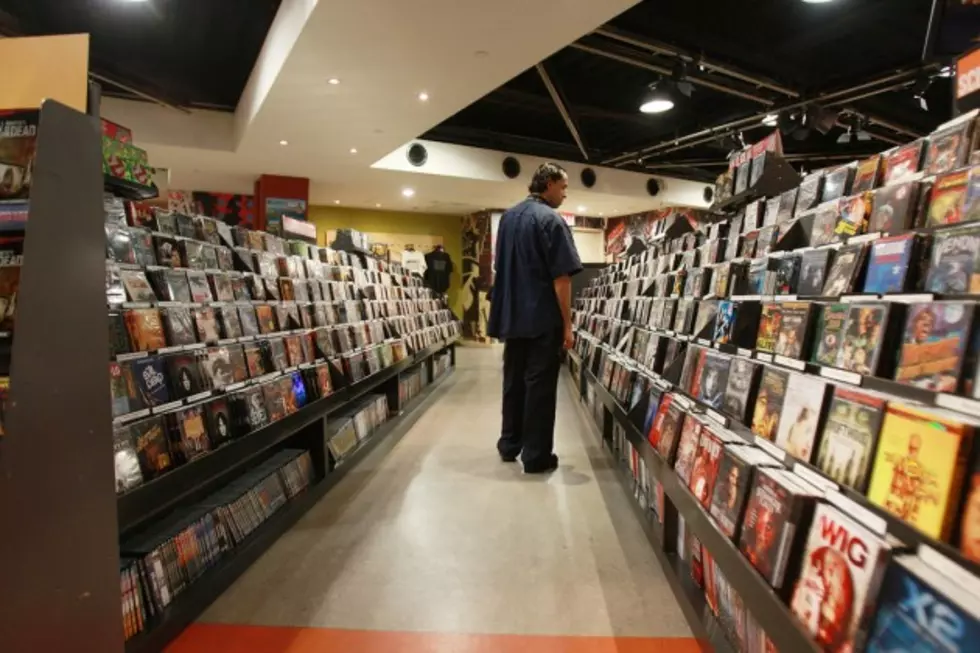
Hey, Maybe There Should Be a CD Store Day, Too
For a minute there, nothing seemed to signify the future more than a compact disc: A world of music somehow scientifically packed onto a razor-thin circle that refracted an impossibly beautiful spectrum of color in the light, it took lasers you would never see to unleash the sound within.
It was enough to make you go out and re-purchase all of the albums you already owned on vinyl or cassette – after all, it would definitely be the last time. Because it was inconceivable that any other technology would come along and render the mighty CD obsolete. Of course, back in 1994, nobody knew how important that “@” symbol would soon become, either. Katie Couric (and thus the rest of humanity) didn’t even know how to pronounce it.
At the time, the same year Green Day released Dookie and Justin Bieber entered the world, record stores seemed to be entering a golden age. Not only centers of commerce, they were gathering places for young and old alike – anyone with a need or desire to be surrounded by relevancy.
Of course, record stores back then rarely sold actual records. You could buy Ace of Base maxi singles, Jurassic Park on VHS and any number of an endless array of music magazines printed on actual glossy paper, but you would need to dig through a clearance shelf buried near the back to find any sparse copies of anything on vinyl.
As the dawn of the internet peeked over the pop culture horizon, few realized it was a harbinger of the end of record stores – which, in the '90s, were actually CD stores.
But as the dawn of the internet peeked over the pop culture horizon, few realized it was a harbinger of the end of record stores – which were actually CD stores. (The dinosaurs probably didn’t worry all that much about that one asteroid when they first noticed it in the sky that day, either.) All things are cyclical, however, and what’s old is bound to again become what’s new. Vinyl records – once only source material for DJs and the way anyone 30 or older first heard Thriller – soon became the quintessential listening format for audiophiles. And now record stores are actual record stores again (like they were up until the late '80s), complete with their own national holiday.
That’s not to say they don’t deserve it: They’re the last outposts of humanity in the cold, post-apocalyptic wasteland of today’s music industry. Streaming and downloading made up 64 percent of all the revenue generated from music last year according to the RIAA and, although vinyl sales did jump more than 50 percent from 2013, they still account for just 2 percent of total sales. So, by all means, go buy a record on Record Store Day. After all, these new deluxe, ultra-collectible vinyl LPs are exponentially cooler than they used to be. (And, yes, I'm aware they do make some cool Record Store Day exclusive CDs, too.)
But those stats mean that the vast majority of the music-consuming masses (those who aren't buying vinyl) lost their version of record stores years ago. The extinction led not only to gaping holes in mall storefronts, but to a huge hole in hearts, too. It led the die-hards to embrace the revitalized vinyl industry, making the remaining brick and mortar (and largely independent) record stores all the more vital.
But will there ever be the same sort of love for CDs? After all, even cassettes are mildly en vogue again (except for En Vogue cassettes, which remain still remain woefully ignored). To at least one generation, music came to exist entirely on compact disc. Now the medium as a whole seems destined for landfills like so many discarded Atari cartridges (which, of course, now go for a decent amount on eBay).
It's perfectly understandable why we have such ambivalence towards CDs now – it's the same reason high school kids have no idea what answering machines were (or the concept of ever being inaccessible).
It's perfectly understandable why we have such ambivalence towards CDs now – it's the same reason high school kids have no idea what answering machines were (or the concept of ever being inaccessible) and the same reason cars don't come factory-equipped with eight-track players anymore. It's just the way our relationship with technology works. But, on a tangible level, CDs require far less physical interaction from us in order to reap the rewards than any other musical format you can hold in your hands.
To listen to a vinyl record, you need to first handle it like its a precious commodity – even a tiny scratch or fleck of dust can wreak havoc – and you then need to operate a very specific piece of machinery to make it work, flipping it over once you reach the end of Side One. Even cassettes require an arguably more personal connection to the music in order to enjoy them. Without any way to instantly jump from track to track (or even any visible markers), you would need to hit play, discern where you were in the context of the album and then fast-forward or rewind to the song you want to hear. It was incredibly archaic but, in retrospect, incredibly romantic.
With a CD, however, you don't need anything more than the track listing and a functioning "skip forward" button. But then we connected with them in different ways: their portability meant we could carry more with us, filling ubiquitous binders, travel cases or even car windshield visors with as many as we deemed necessary. You never knew when or where you'd be when you felt a sudden, irrational need to hear Temple of the Dog.
Ultimately, compact discs are likely finished and that's fine. I'm not calling for some sort of Thoreau-inspired, counter-establishment abandoning of today's post-modern streaming culture. I'm also not saying they're better than vinyl. I'm just saying maybe we should look back on the age of the compact disc with a little more reverence. It's a neon-lit era filled with midnight album releases, in-store listening stations and actual human interaction – which still exists if you're into vinyl, but vanished for everyone else along with Tower Records.
But knowing how all things once considered quaint eventually become cool again, I'll be hanging onto at least a few boxes of my favorite compact discs for at least a couple more decades. Because once all those original Temple of the Dog CDs are long gone, my original pressing might become invaluable to kids reverse-engineering their own DiscMan knockoffs in 2031.
More From Diffuser.fm
